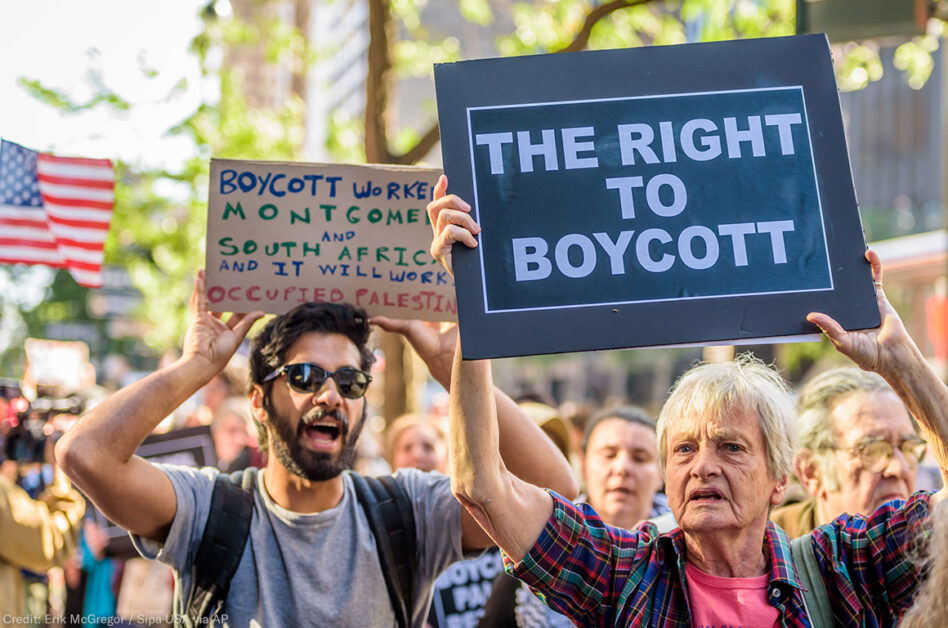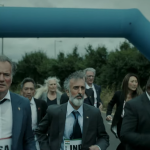By The Malketeer
Sinniah Batumalai is a simple man – a gardener who works tirelessly tending to the lush landscapes in my neighbourhood.
At 45 years old, his calloused hands have planted more flowers than I can count, carefully nurturing them from seeds into vibrant blooms that bring joy to all who pass by.
Sinniah is not a man of politics or fiery rhetoric.
He is a creator, not a destroyer.
He is a bridge builder through his quiet acts of making our corner of the world a little more beautiful day by day.
This Boycott, Boycott No Good!
Yet recently, even this humble gardener has grown concerned about the incessant calls for boycotts that seem to be consuming our nation over the most sensitive of issues – the Israeli-Palestinian conflict, affronts to religious sensitivities, and more.
“All this boycott, boycott no good,” Sinniah told me in his charming broken English as we chatted about the news one sunny morning.
“We must build bridges, not burn them.”
His words stopped me in my tracks.
It was a profound cry for unity, compassion and understanding in a seemingly disunited and turbulent world.
Like many Malaysians, I have participated in boycotts of businesses and brands over causes I fervently believed in.
I’ve let my spending do the talking, hitting them where it hurts most – their bottom line.
Have We Gone Too Far Down the Road of Boycotts?
Boycotts have long been a powerful force for social and political change when other channels seem to have failed.
But Sinniah’s perspective gave me pause.
Have we as a nation perhaps gone too far down the road of boycotts?
Have we resorted to these commercial black-listings so quickly and eagerly that we’ve forgotten the skill of dialogue and understanding?
And, of seeking a common ground?
Our politicians certainly aren’t helping either.
A few of them behave like misanthropes and are perpetually in a samadhi stage of intense pagalness (rage).
Every day seems to bring new calls for boycotts over self-perceived slights or that deemed insensitivity.
Continually Stoking Fires of Outrage
Meanings of words can be taken out of context to unleash a barrage of police reports.
It’s as if an entire sector of society now exists to continually stoke the fires of outrage.
These are not mere boycotts over quibbles anymore.
We’re talking about major global companies being pushed out of Malaysia, draconian restrictions on what movies can show and what products can sell, and an overall climate of fear and censorship under the threat of voice.
Somewhere along the line, we seem to have forgotten that boycotts are meant as a last resort for failed diplomacy – not the first and only tactic in our playbook.
We’ve Created a Culture Where Brands Walk on Eggshells
We’ve let them become a blunt instrument with which to bludgeon anyone who dares to disagree with our ideological stances into submission.
In doing so, we’ve created a culture where companies have to walk on eggshells, terrified that a single misstep could jeopardise their entire Malaysian revenue stream.
We’ve empowered the angriest voices and removed any incentive for meaningful discourse.
Worse, we’ve utterly alienated the very people we should be trying to persuade and bring into the conversation through calm discussion.
How can we spread the virtues of compassion and understanding when our approach is rooted in threats and blacklisting?
No End to Insensitivity and Bigotry
The sad truth is that for all our boycotts, the human rights situation in Palestine has only deteriorated over the decades.
For all our religious boycott fervour, instances of insensitivity and bigotry persist.
If these campaigns were truly effective, the core issues would have long been resolved.
As Malaysians, we pride ourselves as a diverse, maturing nation that has transcended our ethnic and religious divides.
We cherish our multiculturalism and hold dear the ideals of mutual respect and finding common ground.
Yet with every new boycott called for flimsy reasons, we move further away from being a beacon of tolerance.
We fray the social fabric that makes Malaysia extraordinary.
We burn the bridges between communities by focusing on that which divides us rather than unites us.
If even a simple gardener like Sinniah can recognise the folly of our boycott obsession, it’s time for the rest of us to pause and reflect.
Boycotts will always remain a legitimate tool of social change when applied judiciously and as an absolute last resort.
Are We Waking Up on the Wrong Side of the Bed?
But we cannot let them become our default response every time we face an ideological conflict.
Sinniah’s life’s work has been creating beauty through patience and nurturing – lovingly tending to seeds so they blossom into radiant flowers.
If he can contribute so much good through this simple philosophy, imagine how much more we could all achieve if we followed his example.
We don’t need more boycotts.
We need to plant more trees.
We need to get better at building bridges between communities instead of burning them.
We need the courage to engage in difficult dialogues with empathy and a sincere desire for mutual understanding.
Only then can we become the compassionate, conflict-resolving Malaysia that the future generations can be proud of.
If we have to boycott, let’s boycott the politicians who incite hatred, anger and spread misinformation and lies.
MARKETING Magazine is not responsible for the content of external sites.











